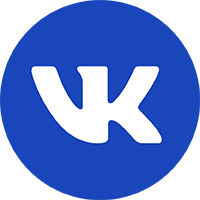
Industrial Ecology
Outcome (diploma or credits): Master of Science
Duration: 2 years (120 ECTS)
Language: Russian/English
Application Deadline: 01 August 2026
Admission Requirements: Bachelor's degree in (industrial) ecology, environmental protection/safety/management, chemical/thermal/industrial engineering, etc., with excellent/good grades; CV & motivation letter; upper-intermediate level of English
Tuition Fee: TBD
Program description
The Master's program trains specialists capable of preventing industrial pollution and protecting the urban natural environment. As an industrial ecology student, you will learn to employ the tenets of green building and sustainable waste management, new energy and resource processes in a circular economy, the best available technologies and ecological design, as well as to promote cleaner production.
The program will perfectly fit students with backgrounds in the following fields: ecology and environmental management, technosphere safety, industrial ecology, environmental biotechnology, environmental design, and other adjacent natural and technical sciences. Students are free to build their own individual learning tracks and sign up for courses that will genuinely meet their interests.
Specializations
-
Environmental Engineering (in Russian)
Students explore the challenges of industrial ecology, considering the latest developments in environmental engineering, energy and resource efficiency of production facilities, development of environmental responsibility within companies, and the introduction of sustainable production and consumption. In the process of studying, they learn to select the best available technologies for wastewater/gas/dust emissions treatment facilities and processing industrial and consumer waste.
-
Cleaner Production and Environmental Design (in English)
During their studies, students gain professional competencies necessary to implement the principles of industrial symbiosis, circular economy, and cleaner production, as well as substantiate their selection of the best available technologies from the perspectives of environmental protection and the economy, minimizing the negative impact on the environment. Training in ecological design equips students with the ability to manage the environmental aspects of production and possible risks within the entire production chain – from extraction of raw materials to product design and waste disposal.
-
Ecobiotechnology (in Russian)
The specialization focuses on theoretical and practical aspects of using living organisms for environmental purposes (applied biotechnology). Within this track, students will work at laboratories where they will gain hands-on experience in developing green biotechnologies to reduce the release of pollutants into the air, soil, and water objects, as well as the amount of waste.
-
Urban Ecology (only for subject area 20.04.01, in Russian)
The specialization aims to tackle practical challenges in the field of sustainable urban development. Within the specialization, students gain knowledge and skills necessary for research and design activities in the field of municipal and construction waste management and green construction, as well as application of landscape design and phytotechnologies for urban environmental protection. Apart from that, students will also master environmental monitoring, GIS technologies, and urban and industrial symbiosis.
Program сontent
-
Life Cycle Assessment
-
Organization of Cleaner Production
-
Environmental Design
-
Basic Environmental Protection Processes and Equipment
-
Modern Management Systems Based on International Standards
-
Environmental Law
-
Research of Alternative Energy Sources
-
Basic Environmental Protection Processes and Equipment
-
Processes and Technologies for Separation and Advanced Purification of Polluted Environment
-
Improving the Environmental Efficiency of Facilities and Installations
-
Applied Ecobiotechnology
-
Design and Operation of Wastewater Treatment Systems
-
Life Cycle Assessment
-
Fundamentals of Environmental Biotechnology
-
Technologies for Bioconversion of Organic Waste
-
Biological Treatment of Effluents and Emissions
-
Remediation of Contaminated Land and Water Bodies
-
Biological Transformation of Substances
-
Life Cycle Assessment
-
Smart City Concepts and Urban Planning Practices
-
Environmental Impact Assessment and Environmental Review of Urban Planning Projects
-
Green Construction
-
Wastewater Treatment and Sludge Processing in Centralized Sewerage Systems
-
Landscape Design and Phytotechnologies for Urban Ecosystem Protection
-
Information Technologies in Urban Planning
*The applicants are required to pass entrance examination successfully.
List of entrance examination questions (2025)
Partners
Organizations:
- JSC “Safe Technologies”;
- Institute of Design, Ecology and Hygene LTD;
- Novy Svet-ECO LTD;
- NORDENA LTD;
- Unifood LTD;
- TPVCIS LTD;
- State Unitary Enterprise "Vodokanal of St. Petersburg"
- SPb State Unitary Enterprise "Passazhiravtotrans";
- All-Russian Society for the Protection of Nature;
- ARSKA Technologies.
Universities:
- University of Valladolid, Spain.
Career prospects
Our graduates successfully build their careers at leading companies and organizations such as Nordena LLC (food industry), Sveza LLC (wood processing industry), the Bastak State Nature Reserve (conservation of unique natural ecosystems), Unifood LLC (food production), the State Unitary Enterprise "Passazhiravtotrans" (passenger transportation), and other sectors of the economy. The knowledge and practical skills they acquire enable them to hold positions as ecologists, environmental engineers, sustainable development and environmental management specialists, as well as to pursue research activities and manage environmental projects, making a significant contribution to the development of responsible business and the preservation of natural heritage.
FAQ
To apply, please fill in the application form and follow our step-by-step application guide for more details. Want to enroll at ITMO without entrance examinations or tuition fees? Learn more about our contests and competitions that will give you this amazing opportunity!
The entrance exam is held online via Zoom. Students have an hour to prepare their answers to two randomly chosen questions (see the list above). You will be provided a template in which you will need to write a short summary of your answer – then, you will present your answer and discuss it with the exam committee. The committee can also ask you why you want to join the program.
You can study both in English and Russian. In your first semester, you will need to choose what language your courses will be in; then, in the second semester you will need to decide on your module and the language of your module. Cleaner Production and Environmental Design is the only English-taught module within the program.
Contact
- Program coordinator: Aigul Miniakhmetova, minaigul86@mail.ru, +7 (911) 159-15-41
- International Admission Office, international@itmo.ru


